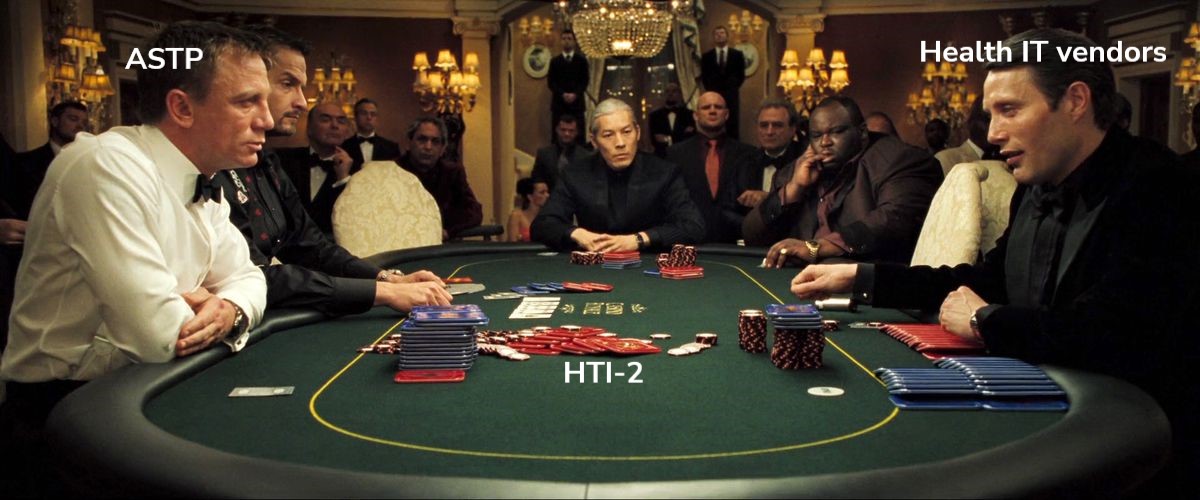HHS and the OIG are past due on the info blocking penalties

Today's a big day. The information blocking regulations have now reached their full scope and cover all electronic health information, rather than the limited subset of data points from USCDI version 1 as has been the case for 18 months. This is a positive step forward; while I wish the government didn't need to get involved, it's clear that rules of the road are needed to advance interoperability, and Congress empowered the ONC to establish these guidelines.
The work isn't done, however. The ONC was responsible for defining the info blocking rules and it has fulfilled its obligations. The Office of the Inspector General for Health and Human Services, as well as HHS itself, were tasked with outlining the penalties and disincentives for info blocking violations, and both are late to the party.
Where we stand
There are a few different characters in the info blocking saga, so let's do a quick review. Three kinds of entities are subject to the regulations—healthcare providers, health information networks/exchanges, and certified health IT developers, which collectively the ONC terms "IB actors." Congress empowered the OIG to investigate all claims of info blocking, and the OIG retains most of the enforcement authority as well. For healthcare providers, though, HHS takes the lead on establishing and applying disincentives.
The OIG issued a proposed rule for the civil monetary penalties it can levy, and it gave a 60-day comment period. It also stated its goal of not enforcing any penalties until at least 60 days after the final rule is published. Trouble is, this all happened back in April 2020. Since then, there have been few public updates other than that they are prepping a final rule and that it's a priority. HHS has similarly said it is hard at work on rule-making.
While no clear reasons have been given for the delays, understandably both departments have had a lot on their plates. The Senate didn’t confirm Inspector General Christi Grimm until February and the office lacks a confirmed Principal Deputy Inspector General. Additionally, the COVID-19 pandemic has rightfully been a top focus area that has taken resources and attention from other initiatives.
Why it matters
Finalizing the penalties and disincentives has the obvious benefit of putting teeth into the info blocking regulations. Rules aren't potent without a means of holding bad actors accountable and discouraging future bad behavior. HHS' rule-making would be especially valuable since more than three-quarters of info blocking complaints submitted thus far have been about healthcare providers.
Yet final rules would also help the IB actors by providing clarity on what to expect. It is not fair to subject these groups to new rules without clearly outlining the consequences of their violation. As it stands, everyone is in the dark about the severity of punishment (outside of the limits Congress wrote into the Cures Act), and uncertainty is no one's friend.
It's time for both HHS and the OIG to step up and complete the rulemaking process on penalties and disincentives. Only then can we say that all the tools to combat info blocking are in place.
---
Photo by Giorgio Trovato on Unsplash



